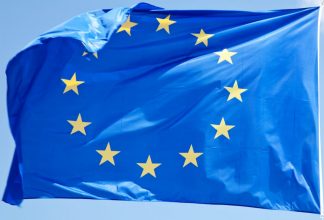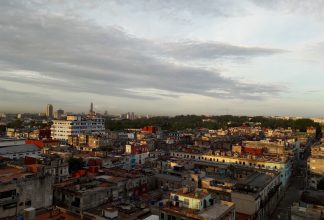Recommendations to the European Union on Decision-Making Regarding Cuba
Letter #20 by Librado R. Linares Garcia.
In July 2019, Civil Rights Defenders invited Cuban human rights defenders and civil society organisations to contribute with texts on how the European Union should work towards Cuba. This letter is written by A Librado R. Linares Garcia.
Recommendations to the European Union on Decision-Making Regarding Cuba
I am pleased about the European Union inviting different civil society organisations to express their views, on how the relations between this bloc of free and democratic countries and their Cuban counterpart should be conducted.
On the Cuban side, as it is known, there is on the one side a regime with a strong totalitarian aim, and on the other, an autonomous civil society in a state of development that is currently unable to drive by itself and carry out democratic changes. In circumstances like ours, freedom must be conquered with a wise strategy. In principle, I advise the EU create a bridge to offer them the possibility to transition.
My proposal has risks, among which are the total boycott that the regime can implement, as well as the possibility of unforeseen events. Depending on how the events unfold, corrections can be implemented in one way or another.
The objectives of the EU must be aimed at encouraging Cubans to transition to democracy, like the velvet revolutions-type that occurred in central and Eastern Europe in the 80s and 90s in the last century. To that end, I propose that the EU articulate two mutually reinforcing lanes: promoting an EU-Cuba meeting aimed at tempering the outbreaks of intolerance in Havana, and, on the other hand, promoting the technological, financial and knowledge empowerment of the different actors of our civil society.
The implementation of both paths should be oriented to: trying to maintain a dialogue with the Cuban government where EU proposals are received as verifiable and truthful, which would include, to be presented as guarantors of any process that is launched, while on the other hand, performing a function of facilitators of pro-democracy living forces. This would enable to develop an engagement strategy with the most pragmatic and realistic representatives of organisations, where young people play a leading role. At the same time it would contribute to promote cultural and behavioural attitudes on both sides, based on the Universal Declaration of Human Rights and the New York Pacts, as well as provide them with possibilities for personal fulfilment such as: training courses, invitations to cultural events and knowledge exchanges in different diplomatic venues, promoting contests with distribution of invitations, using the internet or directly, enabling a venue in our country, with one or several guiding teachers, where those interested can access online tutorial pages and thereby access higher education in different areas of knowledge.(see coursera.org).
Furthermore, to promote the registration of NGOs from both sides of the Atlantic and the consequent transfer of knowledge and skills, as well as to facilitate the participation of people in the events on the island. That is, focus attention on intramural Cuba; lectures by prominent politicians or academics in foreign-owned hotels, churches, lodges or diplomatic headquarters; manage with the Castro government the acceptance in our country, of representatives of the UN, the EU, the International Red Cross, in working duties, and also, if there are official refusals, facilitate meetings outside hotels, diplomatic headquarters, etc. Also, identify fraternal lodges and churches with a related leadership, groups with environmentalist purposes, promoters of some of the manifestations of art or entertainment, LGBTI groups, as well as other manifestations, to summon them directly or through third parties and facilitate their empowerment, which goes through the production of constructive activities: cultural, social and educational.
Other aspects to consider are: to create a group of specialists that identify the most prominent leaders of the Cuban democratic opposition and civil society in general and promote them by all means, which would significantly diminish the denaturing presence within our ranks of G2 agents. The channelling of aid to strengthen a leadership and institutional framework of civil society within Cuba, that aims overcomes the insufficiency in the matter of the National Foundation for Democracy (NED), which consists in the fact, that a good part of it is left out of the country. By promoting an international alliance and the consequent institutionalisation of it, in support of the democratisation of Cuba, where Latin America has priority (the Lima Group is a reference); engage the largest number of EU members so that their diplomats conduct visits and exchanges inside the country, aimed at conquering interrelated and previously agreed objectives, arguing that their Cuban counterparts do the same in Europe (they have hundreds of support groups for the Cuban Revolution); implement a strategy designed to neutralise, as much as possible, the support that the informal authoritarian matrix bloc, consisting of: China, Russia, Venezuela, Iran … offers to those here; present, the bulky file of violations of human rights exercised by Cuba, before specialised international organisations.
Within the government ranks there is a diverse composition: recalcitrant, reformist, pragmatic, realistic and even opportunistic. So, the EU should, as far as possible, apply a taylor-made policy, without renouncing to target it frontally when the case requires to do so. As long as there is a State police in our country and a totalitarian atmosphere that surrounds everything, it will not be possible to establish a formal liberating cooperation with the different institutions (corporations) on the official side. As they conquered power by weapons, they consider it as their war booty.
I believe that the EU should establish or maintain collaboration programs, as well as commercial, economic and financial relations with the Cuban government, aimed at inducing it to take liberating steps. That is, offering credits, market niches, cooperation in various fields, direct capital investments, etc. I also advise, if possible, to promote savings and credit cooperatives or community banks that serve as financial intermediaries, for the emerging private sector, as well as marketing courses for the operators thereof, if it begins to make democratising changes; but if it reacts stubbornly as always, the EU must tighten the pins. In the circumstances of this last variant, influencing third parties to adopt a militant position against Havana and if possible, with international coordination.
Groups of independent economists and others from autonomous civil society, could make periodic reports on the behaviour of European investors in our country, as well as the destination and use of goods and services from the old continent, and how they contribute or not to clear the path in the direction of light. Eventually, they can be called to consult directly and/or to participate in any negotiation as witnesses or observers.
Lithuania has reliable arguments, as well as the legitimate right not to ratify the Agreement.
We, the Cuban democrats, have acknowledged all your concerns, but to carry out my proposals, a negotiation instance is needed. Therefore, I propose to you, to agree on another way on how to approach the Cuban problem, to conquer the imagination of the 28 full members considering my opinions that, moreover, force to offer and try harder. If after a prudential time the Castroists continue the same practices, then you would launch the proposal of the five referred countries and much more.
What offers possibilities in these circumstances, is that you support us in the consolidation of a pro-democracy movement, vigorous and of national scope, an accurate guarantee of a successful transition towards democracy. The strengthening of the different organisations of civil society and emerging politics is to achieve unity in the actions, as well as the capitalisation of the discontent of our captive people.
The implementation of different campaigns, framed in a great strategy to guide to where we are going and how we will achieve it, is essential.
The movement for the civil rights of Afro-descendants in the United States in the 50s and 60s last century, carried out ten of those campaigns and, contrary to what many presaged, achieved its objectives. We are obliged to carry out the non-violent civic struggle with its many methods or related weapons, and for this, we need civic courage, to be willing to pay the price of daring, creative imagination and your contest, because Castroism structured the national scenario asymmetrically: they possess all economic, political power, as well as the institutional monopoly of brute force and the rest of society is in total defencelessness. In other words, the nation, painful as it may be, has to give birth to a new country project: that of freedom and democracy.
Librado R. Linares Garcia, Movimiento Cubano Reflexión
About Librado R. Linares Garcia
Librado R. Linares Garcia in an engineer, founder and General Secretary of the Cuban Reflection Movement (1994). He is a promoter of the philosophy of active non-violence. Former political prisoner, member of the Black Spring 2003 group. He was sentenced to 20 years in prison, of which he served eight.

